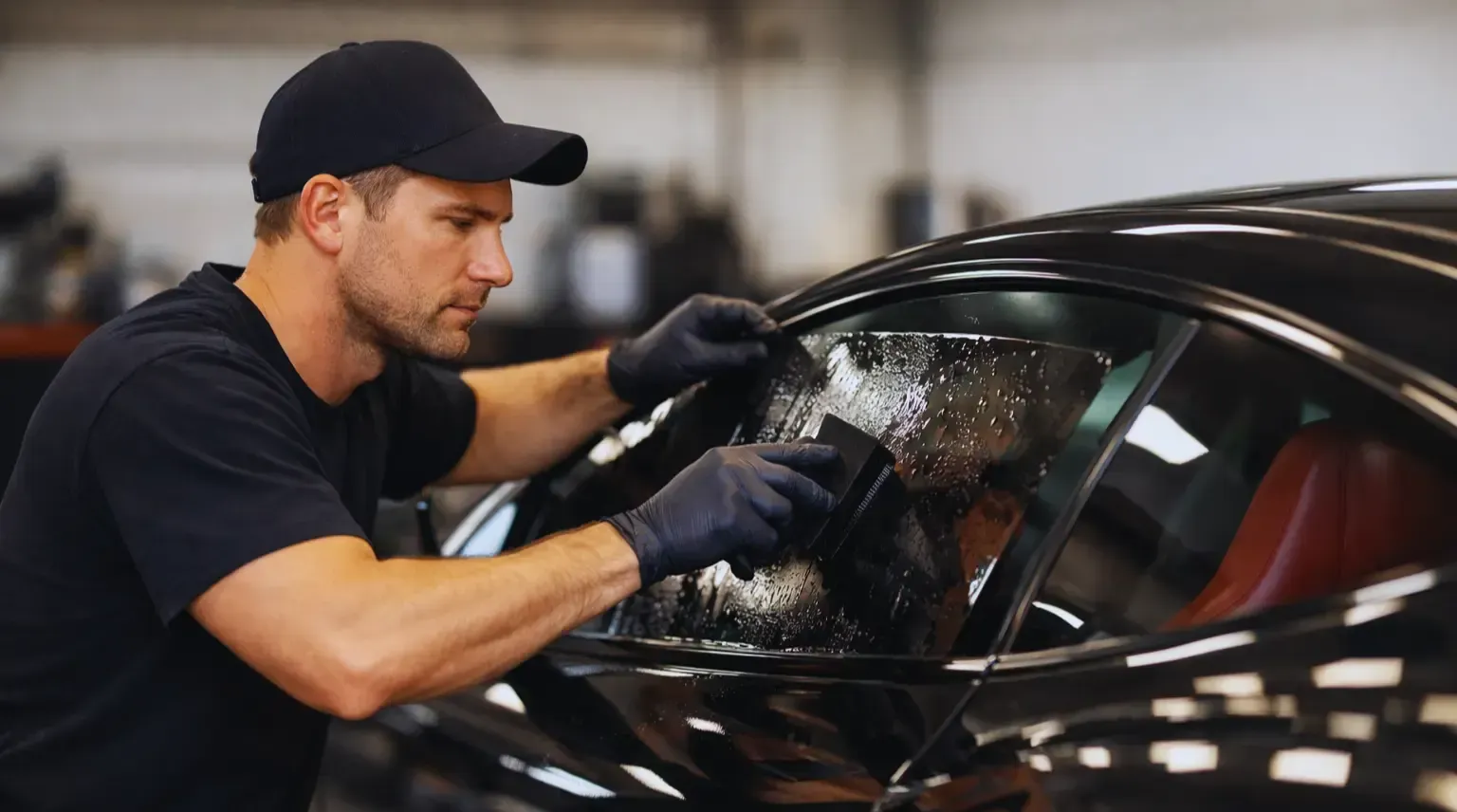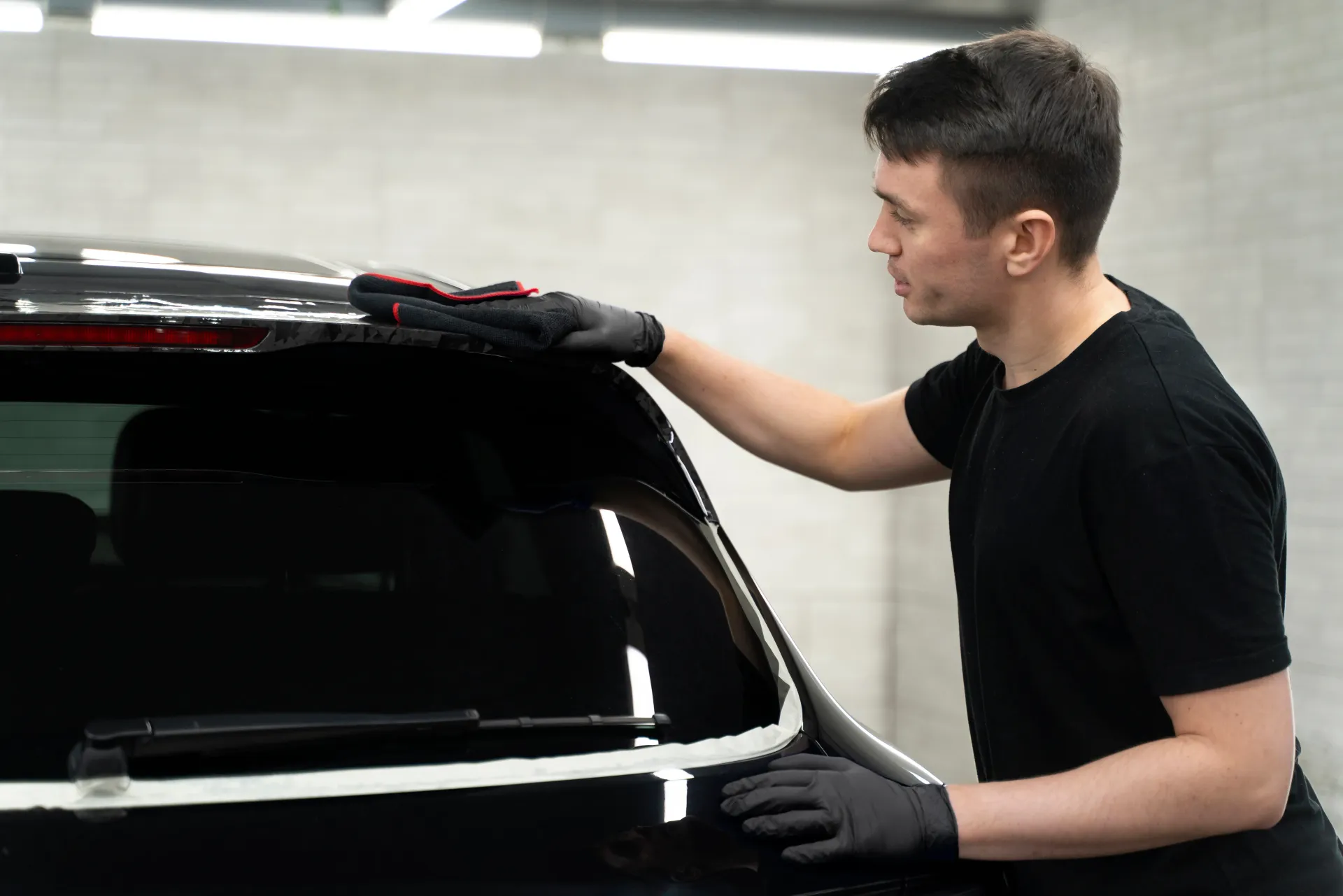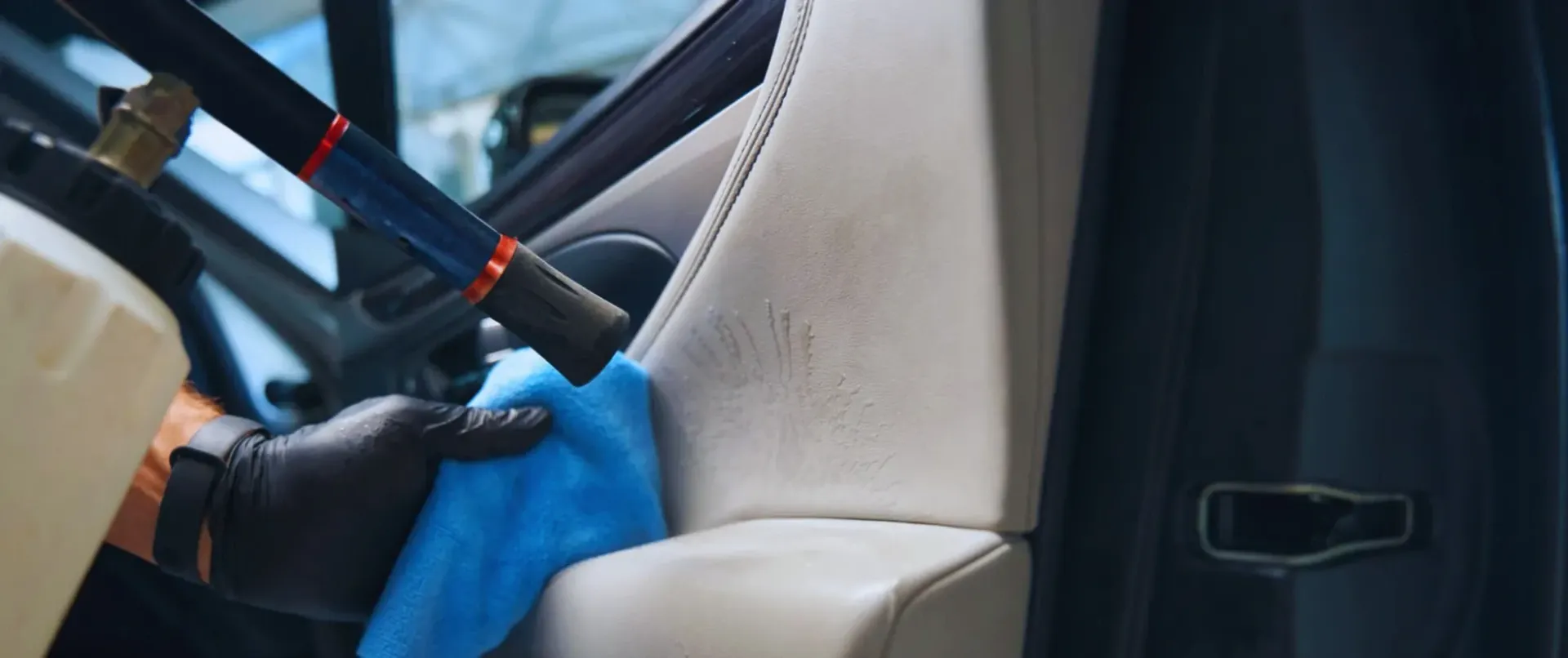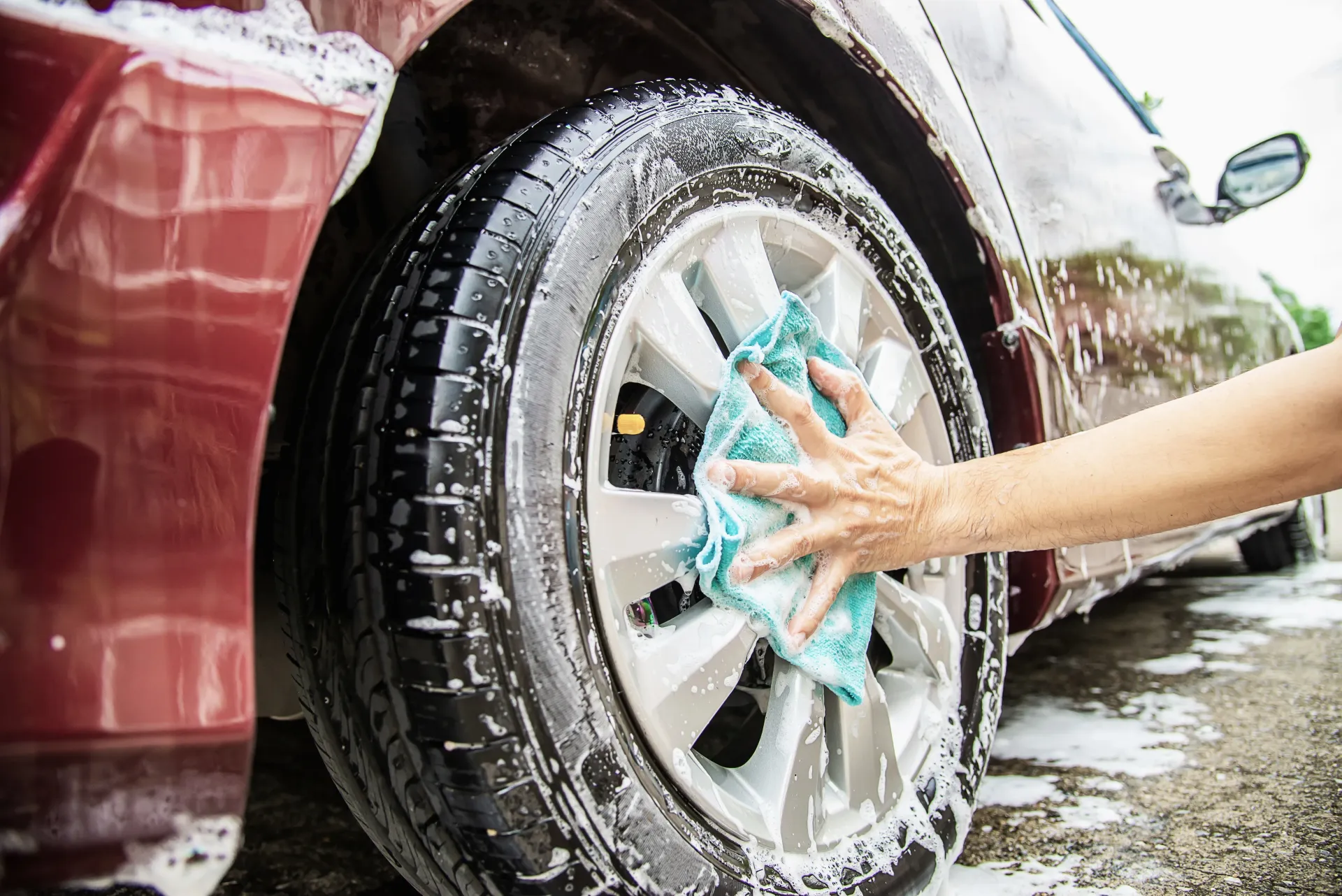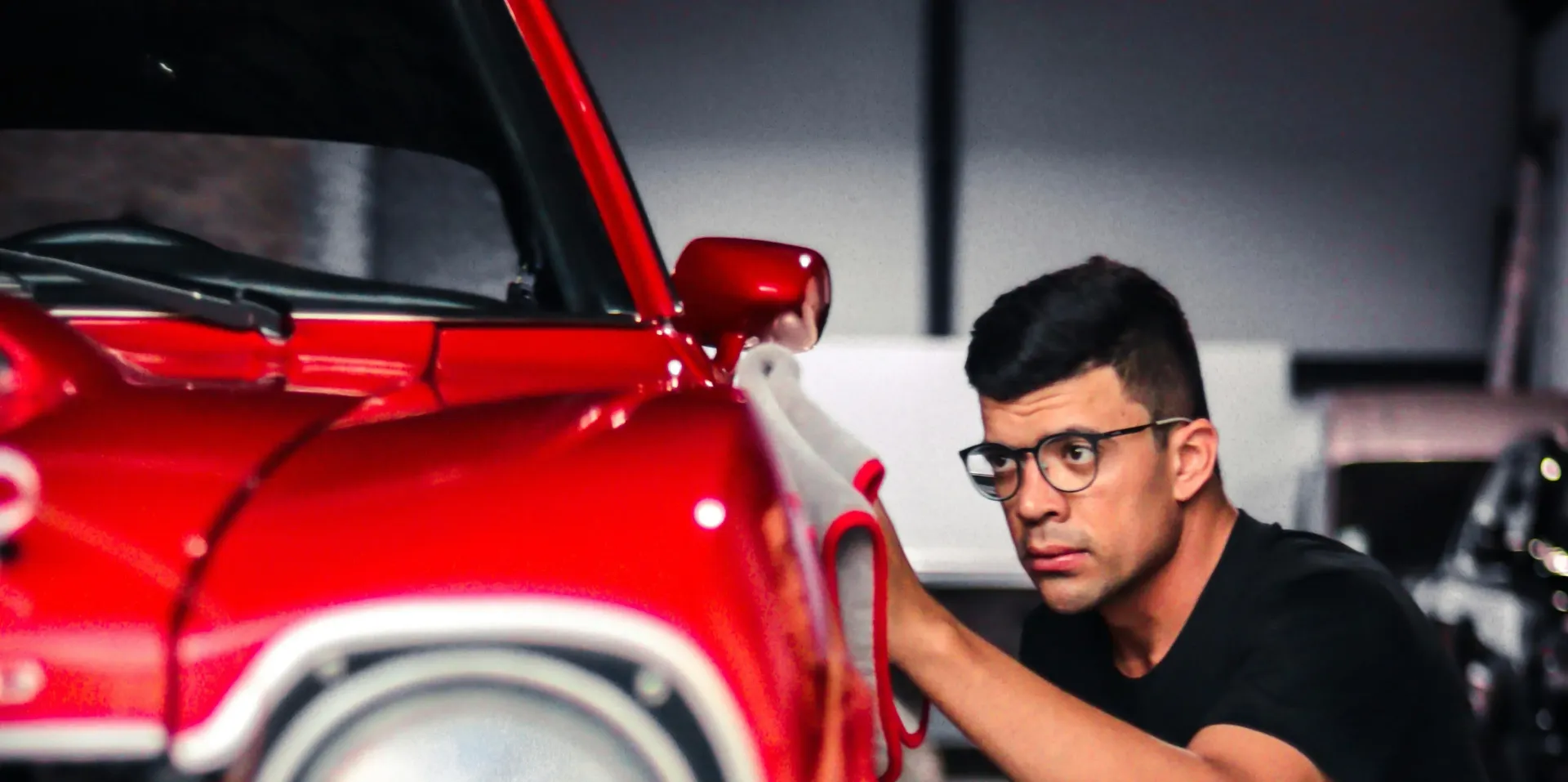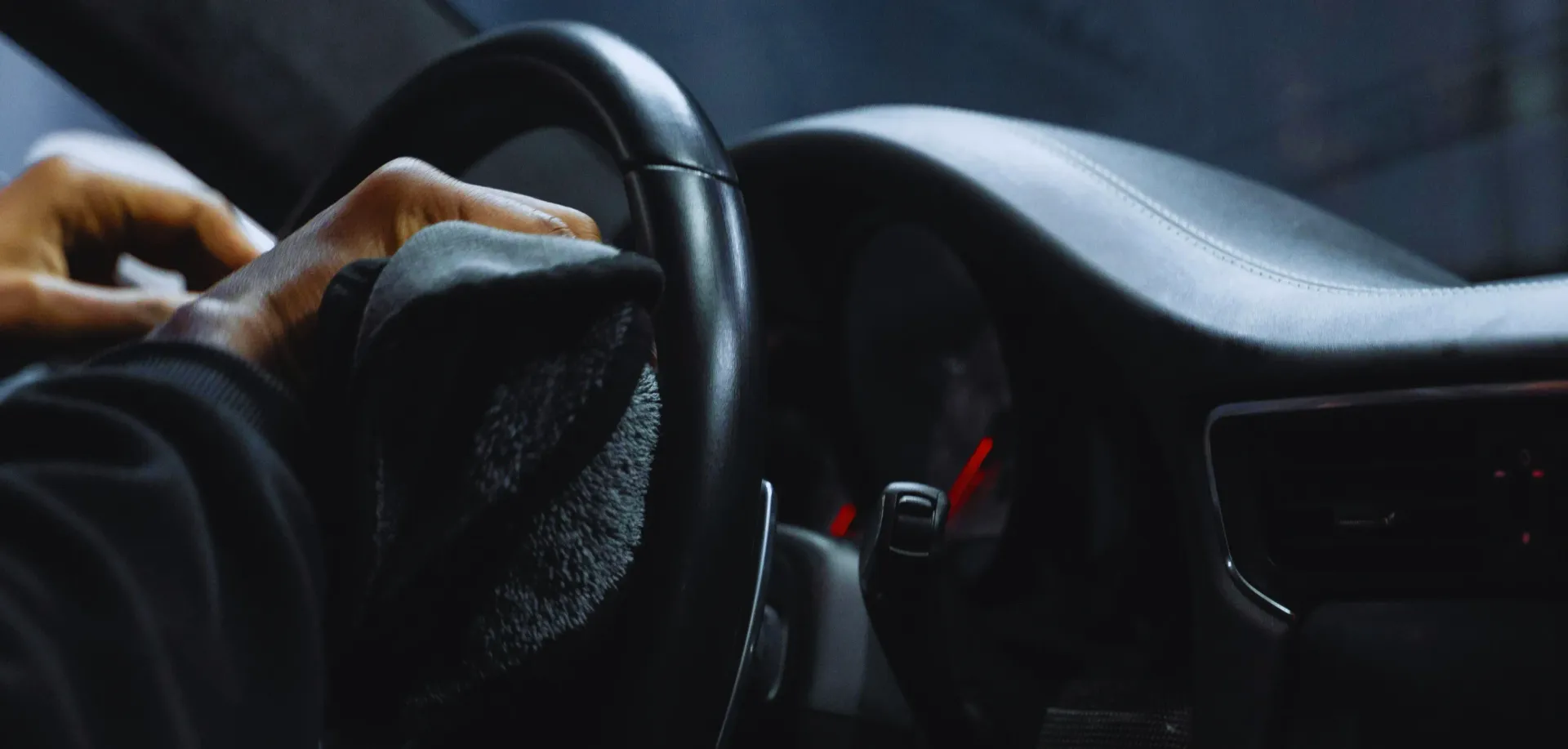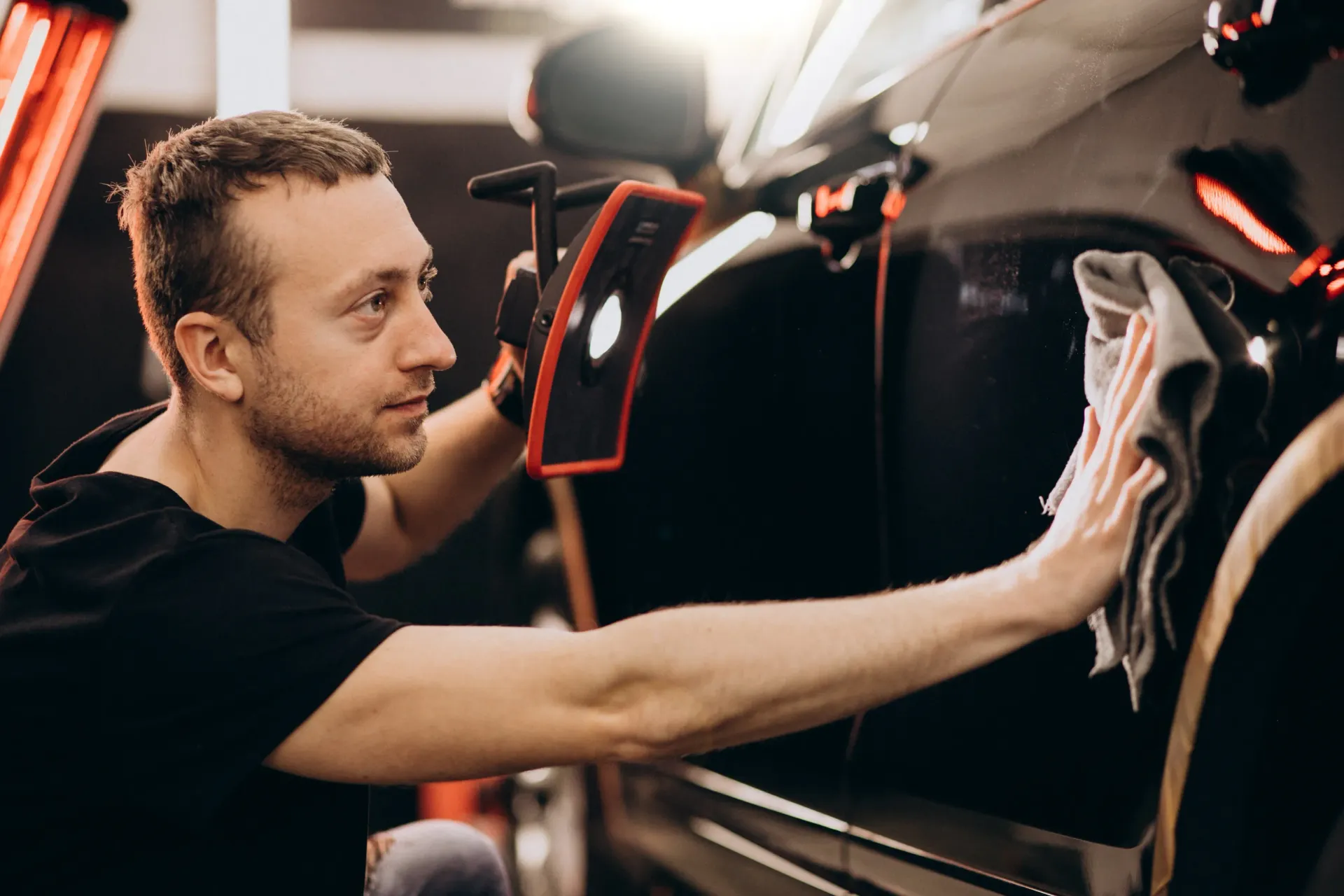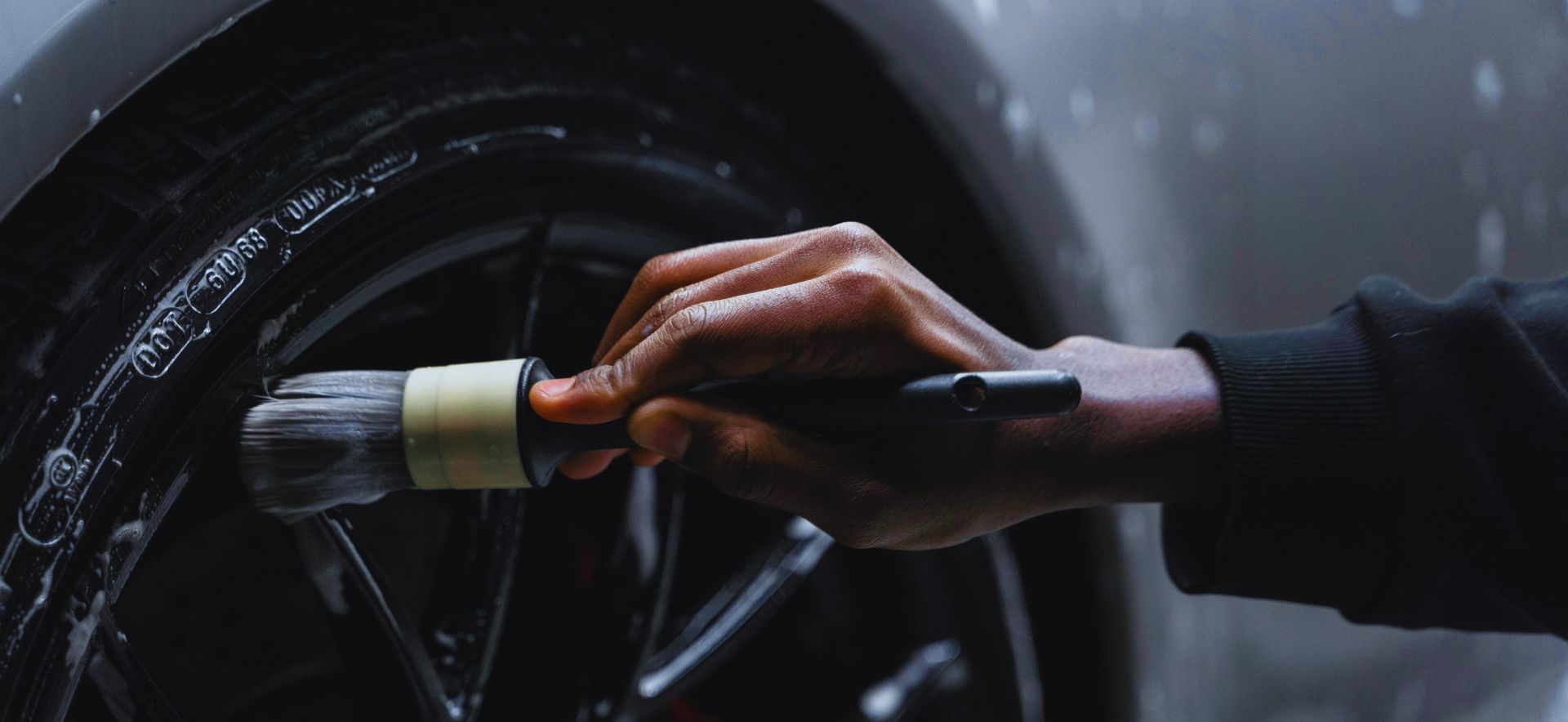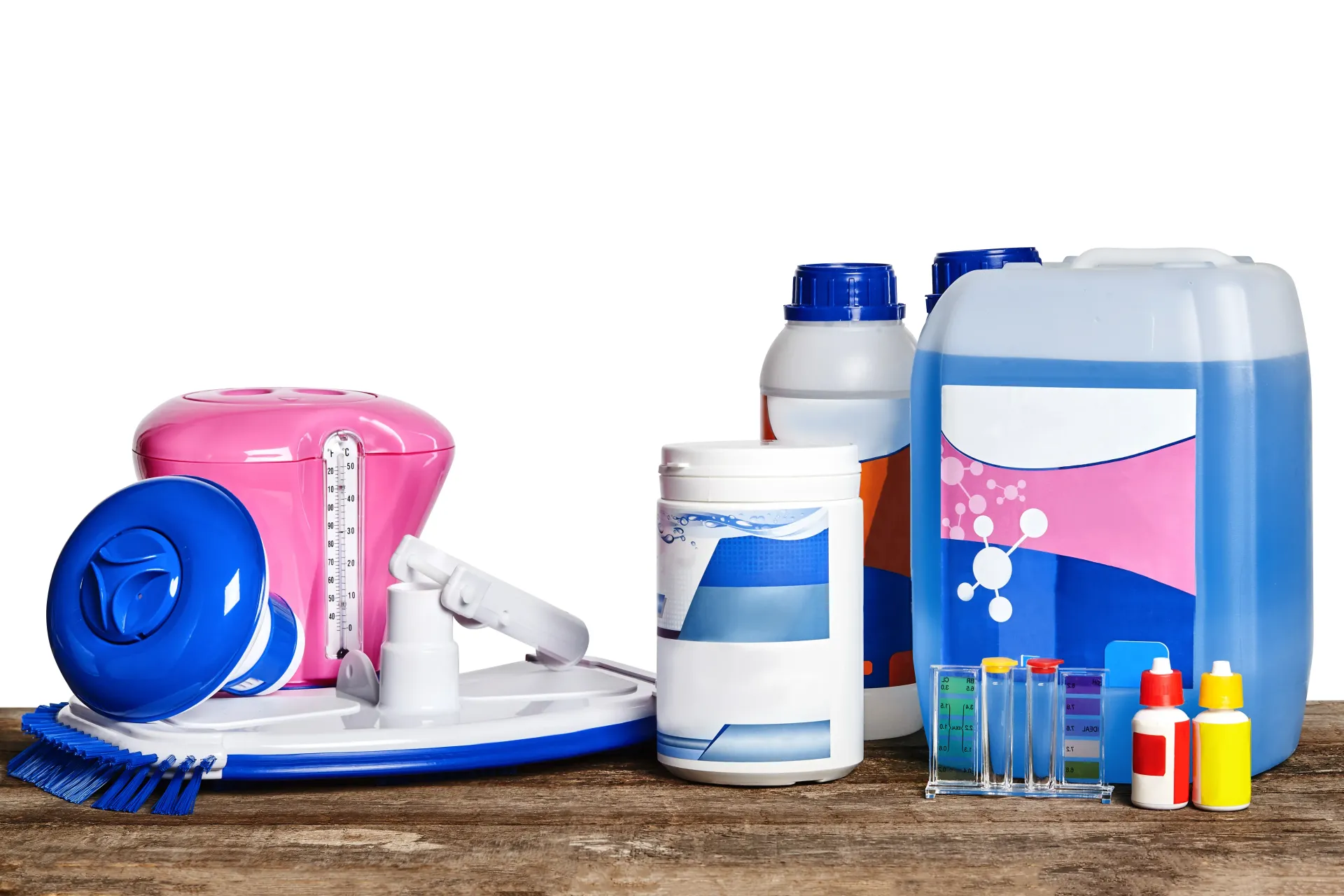Say Goodbye to Sneezes: Keep Your Car Fresh & Allergen-Free
If you’re frequently sneezing, sniffling, or wheezing during your drives, it’s not your imagination—it might be your car. Allergens like pollen, dust mites, mold, and pet dander easily make their way into vehicles, creating a mini ecosystem of irritants that can wreak havoc on your health. Cars offer the perfect environment for allergens to accumulate—confined spaces, recirculated air, and soft surfaces trap microscopic particles, often without visible evidence.
Indoor air quality is well-discussed, but what about in-vehicle air quality? This overlooked space can harbor more pollutants than outdoor city air, making regular cleaning essential for a healthier ride.
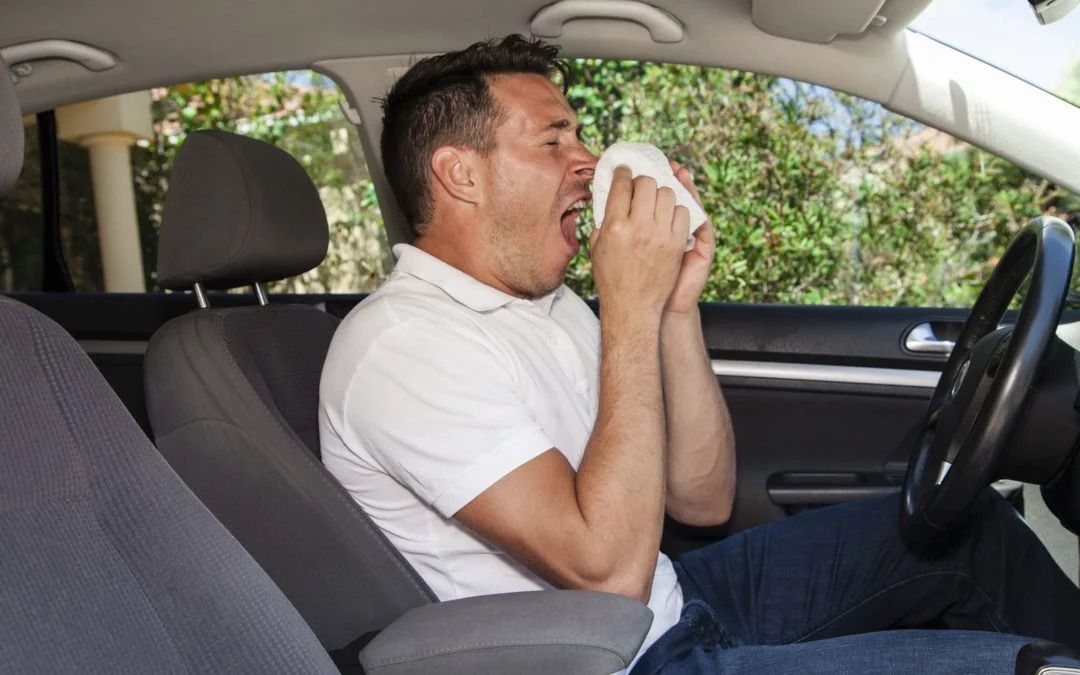
Why Your Car Might Be Making You Sick
Many drivers don’t realize that symptoms like itchy eyes, runny noses, or chronic coughing can be traced back to their vehicle. While newer cars have better HVAC systems, allergens still find ways in. Air conditioning vents can harbor mold spores. Carpeted floors trap pollen and dust. Even your car seats—especially cloth upholstery—can hold on to dander and bacteria. Recirculating air instead of venting it can increase exposure to existing contaminants.
Say Goodbye to Sneezes: How Allergens Sneak Into Your Car
Allergens sneak in every time you do. Shoes track in dirt and pollen. Clothing brings in pet dander or mold spores. Rolling down windows lets in outside allergens, while neglecting your cabin air filter gives them a free pass. Even your beloved furry companions shed hair and dander that become embedded in fabrics.
The Importance of Regular Car Cleaning
Car cleaning isn’t just about aesthetics—it’s about air quality and health. Consistent cleaning reduces allergy flare-ups, minimizes bacteria, and prevents mold growth. A clean car also smells better and improves your mood. When you reduce allergen levels inside your vehicle, you create a safe space, particularly important for those with asthma, rhinitis, or skin sensitivities.
Best Practices for Vacuuming Car Interiors
Vacuuming might seem basic, but doing it right makes a difference. Use a vacuum with a HEPA filter, which captures fine particles rather than blowing them back out. Pay special attention to carpeted areas, under seats, and crevices. Use brush attachments to agitate and loosen embedded dust.
Wipe Down Strategy: Dashboard to Door Panels
Surfaces collect more than dust—they’re hotspots for allergens. Use anti-static microfiber cloths and a mild, fragrance-free cleaner to wipe down all hard surfaces. Dashboards, steering wheels, cupholders, door panels—no area is too small. These surfaces harbor allergens that can become airborne when disturbed.
Deep Cleaning the Air Vents
Vents are an allergen highway. Use a soft vent brush or compressed air to clean out debris. You can also spray antibacterial or mold-control formulas specifically designed for HVAC systems. This not only clears allergens but also removes that musty smell often present in older vehicles.
Why Cabin Air Filters Are Your First Line of Defense
Your cabin air filter is the unsung hero in your battle against car allergens. Designed to trap dust, pollen, and mold, a clogged filter becomes a health hazard. Check your manual for replacement intervals—usually every 12,000 to 15,000 miles. For those with allergies, opt for HEPA-grade filters.
Choosing the Right Car Air Purifier
Not all purifiers are created equal. Look for in-car air purifiers that use HEPA filtration or activated carbon, not just ionizers. Place them strategically—in cup holders or rear seats—and clean their filters regularly. This continuous filtration helps maintain low allergen levels.
Natural Deodorizers for a Fresher Ride
Forget chemical air fresheners. Instead, use activated charcoal bags or baking soda to absorb odors and moisture. Lavender or tea tree essential oils can provide a calming scent while offering mild antibacterial benefits. Be cautious—some scents can trigger allergies too.
The Role of Humidity in Allergen Build-Up
Humidity breeds mold. During rainy or humid seasons, moisture accumulates in your car—especially in the carpet and trunk. Use silica gel packets or portable dehumidifiers to keep moisture at bay. Crack windows slightly during parked hours or use vent visors to release trapped air.
Beware of Upholstery Allergens
Cloth seats are notorious for trapping allergens. Leather or faux leather surfaces are easier to wipe and maintain. Use seat covers that are allergen-resistant and washable. Consider steam cleaning cloth upholstery every few months to sanitize it thoroughly.
How Often Should You Detail Your Car?
Aim to detail your car seasonally, at a minimum. Spring and fall are critical, with pollen and mold peaking. Also, detail after rainy spells or road trips. A consistent cleaning routine helps minimize buildup. Consider a professional Mobile Auto Detailing Service to save time and ensure deeper sanitization.
Benefits of Mobile Auto Detailing
Aside from convenience, mobile detailing professionals use industrial tools, steam cleaners, and allergen-specific treatments. They tackle spots you miss and save you hours of labor. Services often include interior shampooing, ozone treatments, and vent cleaning.
Allergen-Free Car Kits: What Should Be Inside?
Prepare a small kit for your glovebox with:
- Hypoallergenic wipes
- Travel-size hand vacuum
- Fragrance-free hand sanitizer
- Compact HEPA air purifier
- Dust mask (especially for allergy-prone passengers)
DIY vs Professional Detailing for Allergy Relief
While DIY is budget-friendly, it’s often surface-level. Professionals dig deep—literally and figuratively. If you're struggling with ongoing symptoms despite your best efforts, it's time to Contact a detailing expert.
Impact of Pet Hair and Dander in Cars
Love your pets? Sure. But their hair, dander, and even saliva contribute to indoor allergens. Use pet seat covers, lint rollers, and vacuums after every trip. Bathe pets regularly and brush them before car rides.
Odor Neutralization vs Air Freshening
Odor neutralizers eliminate smells; air fresheners mask them. For allergy sufferers, fragrance-free or low-VOC solutions are best. Consider ozone machines for deep odor removal—just ensure the vehicle is unoccupied during treatment.
How to Keep Kids Safe from Car Allergens
Children are more sensitive to allergens. Clean toys and car seats weekly. Avoid food messes and vacuum crumbs immediately. Wipe down hard toys with baby-safe disinfectants.
Weekly Maintenance Checklist for Allergen-Free Driving
- Quick vacuum
- Wipe dash and door panels
- Refresh deodorizers
- Shake out floor mats
- Check cabin filter status
Eco-Friendly Allergen Control Tips
Sustainable and safe can go hand in hand. Use vinegar, baking soda, and lemon for natural cleaning. Opt for reusable microfiber cloths and essential oil sprays over chemical-heavy fresheners.
The Psychology of a Clean Car
There’s real science here. Cleaner environments reduce stress and increase mental clarity. Driving becomes less irritating and more peaceful. Your nose—and mind—will thank you.
Using Technology to Monitor Car Air Quality
Smart gadgets now offer real-time air quality tracking. Devices sync with your phone and suggest when to purify or ventilate. An excellent tool if you're managing chronic allergies or asthma.
Avoiding Mold After Rain or Snow
Dry your car ASAP. Remove wet mats, check trunk seals, and avoid sealing moisture inside the vehicle. Leave windows slightly cracked in safe zones to vent condensation.
Detoxing a New or Used Car
New car smell? That’s off-gassing from VOCs in plastics and adhesives. Use air purifiers and keep windows cracked to vent these compounds. For used cars, deep clean and replace filters immediately.
Road Trip Prep: Allergen-Proof Your Journey
Before hitting the road: vacuum, air out, wipe everything down. Keep allergy meds handy. Bring a portable purifier. Prep means fewer headaches—and fewer sneezes—miles later.
Long-Term Storage and Allergen Risks
If you're storing your vehicle, clean it thoroughly first. Use car covers, avoid mothballs, and include moisture absorbers. Revisit your car monthly to prevent allergen build-up.
Seasonal Cleaning: Spring and Fall Musts
In spring, focus on pollen removal. In fall, clear leaves and moisture. Clean the HVAC system, inspect seals, and change filters. Seasonal attention prevents long-term issues.
Smart Habits for Allergen Prevention
Small actions, big results:
- Remove shoes before entering
- Don’t eat inside
- Ventilate when parked
- Keep clutter minimal
When to Contact an Expert for Car Cleaning
Still sneezing? See mold? Smell something off? Call a pro. Persistent allergens often mean it’s time for a deeper clean—reach out to Contact now.
FAQs
How often should I replace my cabin air filter?
Every 12,000 to 15,000 miles, or more frequently during allergy season.
What’s the best air purifier for a car?
HEPA purifiers with activated carbon filters offer the best allergen control.
Are leather seats better for allergy sufferers?
Yes. Leather is easier to wipe clean and doesn’t trap allergens like cloth does.
Can essential oils help with allergens in the car?
Yes, but only certain ones like eucalyptus or tea tree, and always in moderation.
What’s the difference between cleaning and detailing?
Detailing is more thorough, often using steam, deep shampooing, and vent sanitation.
Is ozone treatment safe for allergy control?
Yes—if used correctly. The car must be aired out afterward to avoid irritation.
Conclusion
Say goodbye to sneezes and hello to fresh air—right inside your car. Allergens may be invisible, but your proactive efforts won’t be. By following this guide, you’re not only maintaining a cleaner car but also a healthier lifestyle. And when in doubt, let the pros handle it.
Links

